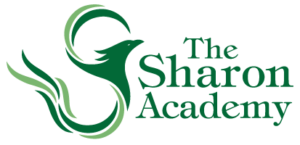Deeper Learning in Middle School Social Studies
The Sharon Academy Middle School is defined by three fundamental attributes: a safe and supportive learning environment, rigorous academics achieved through our integrated curriculum and high expectations, and a dedicated faculty that makes it all possible. The result is apparent each year as our 8th-grade students graduate confident of their abilities, articulate about their knowledge and needs, and effective as team members who are empowered to take responsibility and leadership.
TSA’s integrated curriculum underpins the academic experience. Its central philosophy is that information is best absorbed when it is connected and reinforced through relevant holistic themes. This form of deeper learning is manifested repeatedly throughout the curriculum, which is presented in a two-year cycle of units so that during the course of a student’s two-year stint at the school, they cycle through a complete in-depth exploration of six curricular units. Each trimester, students examine that unit’s topic through the lenses of science, language arts, and social studies.
For example, in the Food and Hunger unit, students spend several months researching specific issues relating to food and hunger on a local, national, and global level. Deeper learning occurs in this context because the students are engaged in the research topics that specifically interest them. They draw on the skills and information they’ve been learning across disciplines to analyze real-world problems. Students then choose how they would like to share their learning with the public, whether in the form of a long-form article, podcast, infographic, or video.
This year, this work has been compiled on a student-created website, available to the public to help educate the community about the intricacies of these important topics. Originally the students’ work was printed in a hard copy publication called “Our Times”, but TSA has gradually shifted to be 100% online, incorporating students’ website skills and saving paper. This year, the work is compiled on the Food Justice website.
This unique project in the Food and Hunger unit encourages students to consider more deeply how the choices they make about food affect health, animals, workers, and the environment. We invite you to explore the product of their labors and learn from their insights.
See past editions of “Our Times” the Food and Hunger print newsletter:
Our Times 2020
Food and Hunger Newsletter 2018
Our_Times_May_2012
TSA Food and Hunger Newsletter 2016
2014 OUR TIMES Final
